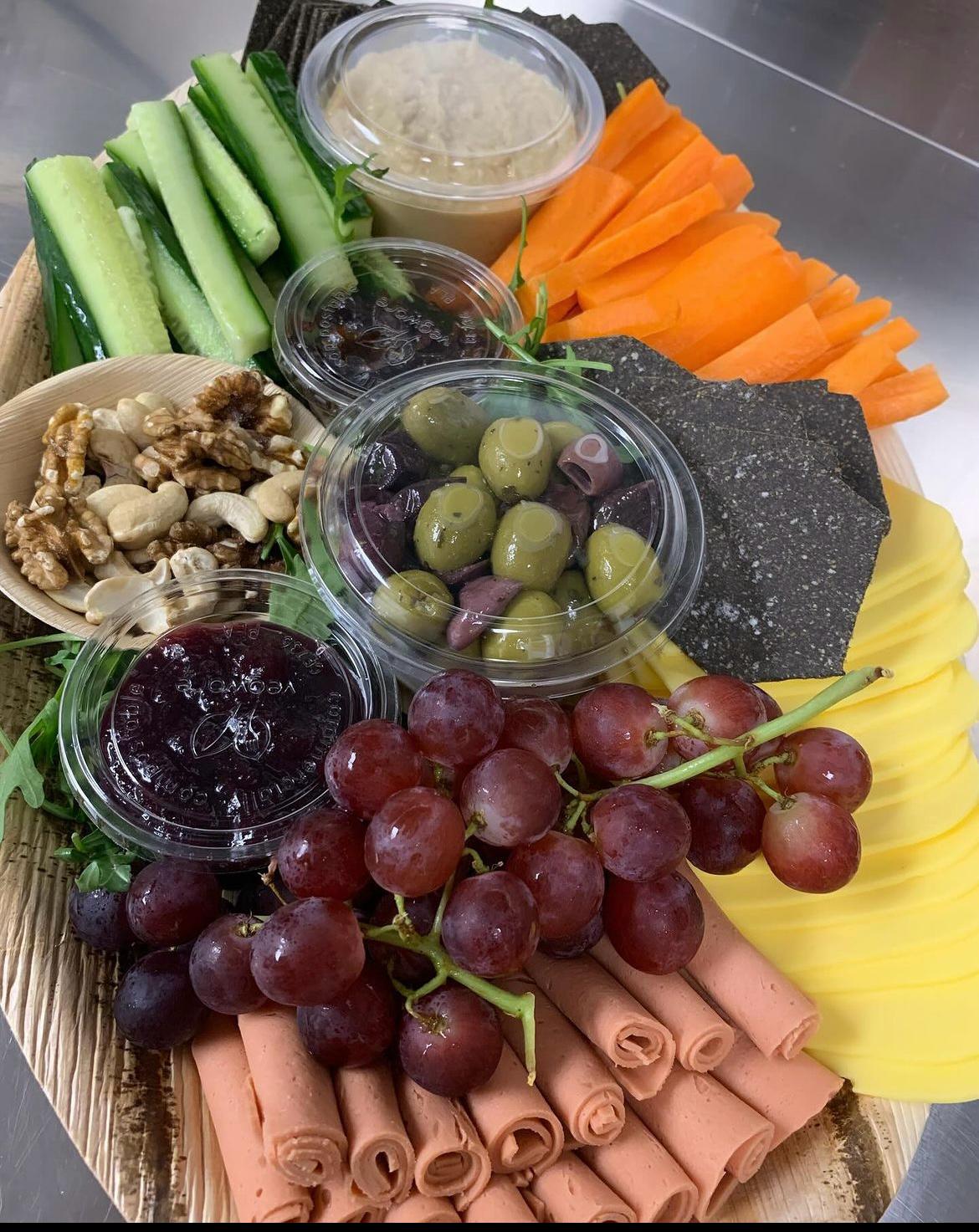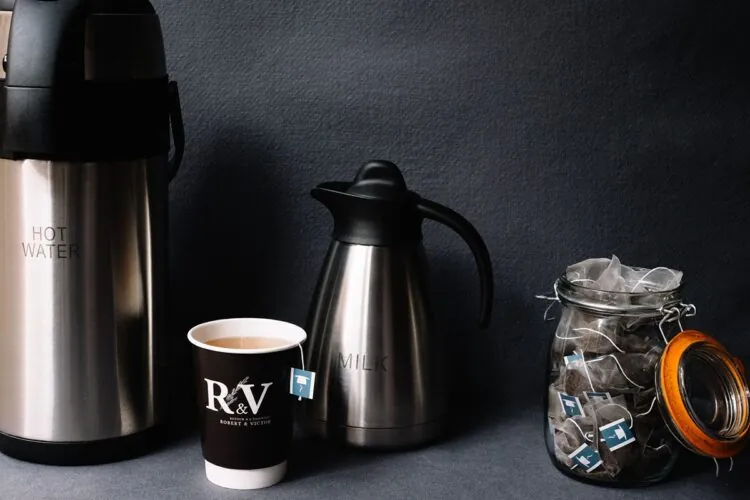
We might be biassed here, but food is often the highlight of most corporate meetings and events.
While everyone enjoys great food, not everyone can (or wants to) eat from the same menu. Between catering for different preferences and accounting for specific dietary restrictions, you’ve got a lot on your plate as an event organiser – and that’s before you even get a chance to tuck into lunch!
Event catering is all about finding the right balance between the different types of eaters. You want to make sure each one of your attendees feels welcome by respecting their dietary preferences with a lush variety of food offerings to choose from.
But how do you make sure you cater to everyone?
Trying to manage ever-changing food trends, food allergens, dietary preferences, and restrictions can make you feel like you’ve bitten off a little more than you can chew.
But don’t worry! Whether you’re organising external catering (which we’re the experts at in Manchester!), preparing it yourself, or simply picking up some grub from the shop, we’ve created the ultimate guide from our years of catering experience to help make your upcoming event a total success.
Keeping on top of dietary requirements and restrictions
1. Consider personal dietary choices
These days, lots of people make choices around the kinds of food they eat for personal, health, and environmental reasons. The old standard of ‘meat and two veg’ many of us Brits were raised on simply isn’t going to cut it anymore when catering for a large crowd.
4% of the UK’s population are vegan, and 8% are vegetarian. So, the most common dietary restrictions to consider are for those sticking to a vegan or vegetarian diet.
But it doesn’t end there! A growing number of people are making more unique and specific choices when it comes to their diet, such as:
- Avoiding processed foods and meats
- Only eating organic and free-range food
- Eating meat but following a dairy free diet
- Avoiding animal derived foods other than fish
- Following the Paleo diet or Keto diet
That’s a lot to think about! (That said, working with a catering company will make tending to everyone a whole lot easier.)
2. Don’t forget about religious dietary restrictions
While some people restrict their diet for personal reasons, others do so to follow religious or cultural practices.
Some people may have a strict halal or kosher diet – meaning meat must be specially prepared in a specific way, while certain meats aren’t allowed at all.
It’s important to understand the difference between the two diets so you can ensure everyone is taken care of and can enjoy a delicious lunch, regardless of religion. (Working with a professional food supplier is vital to ensure the food is certified kosher or halal.)
3. Be mindful of food allergies
Up to 10% of people in the UK have a food allergy or hypersensitivity, so odds are, someone at your event is going to fall into this category.
The last thing you want is for a member of your party to suffer an allergic reaction on your watch, so it’s super important to be aware of common food allergies and how to handle and distribute food in a safe way for everyone.
While lactose intolerance and peanut allergies are more widely known, according to the Food Standards Agency, the most common food allergies to be aware of are celery, gluten, crustaceans, molluscs, fish, eggs, cow’s milk, mustard, nuts, sesame, soya, and sulphites.
4. Offer gluten free options
You might think of the gluten free diet as a bit of a fad. But the truth is, it simply doesn’t agree with a lot of people.
Whether that’s intolerance, coeliac disease, or simply a preference to avoid it, people who can’t eat gluten containing foods are often unable to eat certain foods like sandwiches and baked goods.
Make sure to provide plenty of delicious gluten free options at your next business event so more people can enjoy what’s on offer.
5. Don’t forget about drinks!
That’s right – it’s not just food you’ve got to think about!
Remember to have plenty of plant based milk at the ready for teas and coffees first thing in the morning.
For lunch time events, have diet or sugar-free soft drinks available for people with diabetes or those simply watching their sugar intake. And if you’re serving alcohol, be mindful of allergens like gluten and sulphites when serving beer and wine.
Expert tips on catering for events the fair and safe way
6. Ask about dietary requirements before the event
It’s absolutely essential to get ahead of the game when catering for large numbers of people.
Ask all attendees for their specific dietary requirements before the event. Don’t leave this till the last minute! Make sure to give yourself enough time so you can properly cater for everyone.
When sending out your invites, simply add a little note for guests to get in touch with any special diet requests. Make note as soon as you hear back, or send them on to your catering company straight away.
7. Provide more options that you think you’ll need
It’s always better to be safe than sorry! It’s likely that a few attendees will forget to send on their diet requests, so make sure to include a few extra vegan and veggie options just in case.
If you’re struggling to receive dietary requirements for an upcoming meeting or corporate event (or you’re organising an open event) the general rule of thumb for orders is 30% vegetarian, 15% vegan, and 10% GF. Easy!
8. Ensure safe food prep and set-up
Cross-contamination with food allergens is a concern at large events.
If you’ve prepared or ordered certain dishes due to a specific food allergy request, always keep them clearly labelled and separate from the rest of the food. And don’t forget to use designated utensils when handling them!
Communication is key when organising food for others, so take extra care while gathering special requests and implementing them into your event or meeting menu.
Also, be certain your chosen caterer has the correct accreditation before hiring them. Food hygiene training is essential to ensure kitchen staff are properly trained to handle different allergens, intolerances, or preferences to keep your attendees safe and happy.
Make yours an event to remember with professional catering for corporate functions from Robert & Victor
Take the hassle out of organising your upcoming business lunch or next important client meeting. As big-time foodies ourselves, we’re the experts when it comes to creating menus everyone can enjoy – so let our team take care of yours.
Everything is locally prepared using only the freshest ingredients right here in Manchester, so you can enjoy your meals right down to the last bite.
We cater to everyone at Robert & Victor, with plenty of plant based foods and allergen-friendly options available. Get in touch to find out how we can cater for your upcoming event to make it your best one yet!



